
Since its inception in the early 1970s, the WIC program was designed to be a safe harbor for people in underserved communities, who have often faced barriers to programs and services, experiencing historical social and health disparities. These include members of the LGBTQ+ community. Research shows that LGBTQ+ individuals experience nutrition disparities, discrimination, deferment of care because of concerns of mistreatment and inadequate care when accessed. In 2017, it was estimated that between 2 million and 3.7 million children under age 18 had an LGBTQ+ parent, and that approximately 200,000 of those children were being raised by a same-sex couple. The medical community has increasingly worked to support pregnant people regardless of sexual orientation or gender identity. WIC must push beyond the nation's historic marginalization of LGBTQ+ families to serve all eligible children and ensure a healthier next generation. I believe that WIC is well-positioned to make the service experience for LGBTQ+ people more productive and rewarding.
Local agencies nationwide have a history of administering their programs from a place of equity, fairness, and inclusion for all. That is certainly the aim of the WIC program within CCI Health Services (CCI), where I serve as the WIC Director. The provision of care in our program begins by ensuring that CCI’s team members meet the participants where they are and provide culturally appropriate care based on their understanding of the person’s circumstance. This is guided by the utilization of evidence-based strategies and techniques rooted in a person-centered approach.
certainly the aim of the WIC program within CCI Health Services (CCI), where I serve as the WIC Director. The provision of care in our program begins by ensuring that CCI’s team members meet the participants where they are and provide culturally appropriate care based on their understanding of the person’s circumstance. This is guided by the utilization of evidence-based strategies and techniques rooted in a person-centered approach.
These techniques include active listening (conscious effort to hear the message beyond the words), value-enhanced nutrition assessment (participant-centered, health outcome-based approach to a WIC nutrition assessment), peer-to-peer learning (people from the same community sharing experiences and information), awareness of implicit bias (one’s attitudes towards a certain group of people without our conscious knowledge), person-centered language (language that puts people first), and customer care (forming an emotional connection with the participant).
While these techniques create the foundation for a welcoming experience for any participant, WIC clinics can take extra steps to ensure that everyone feels welcomed, seen, and more importantly: understood. As we celebrate Pride Month, it’s also important for us to reflect on ways to better serve LGBTQ+ people. Below are a few ways my team employs strategies to enhance service provision for LGBTQ+ people in our community.
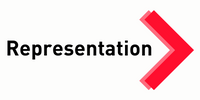 Programs must make an effort to recruit staff from all different communities served, including LGBTQ+. Additionally, WIC’s social media content should include images depicting members of the LGBTQ+ community. The new national Recruitment & Retention Campaign is making a great effort to be more inclusive in this aspect.
Programs must make an effort to recruit staff from all different communities served, including LGBTQ+. Additionally, WIC’s social media content should include images depicting members of the LGBTQ+ community. The new national Recruitment & Retention Campaign is making a great effort to be more inclusive in this aspect.
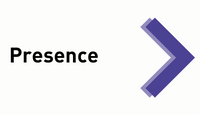 WIC programs must do outreach within the communities where LGBTQ+ reside, socialize, and celebrate publicly. CCI’s WIC program participates in many local events, catering to specific populations such as PRIDE celebrations, community block parties, HIV testing days, etc. Additionally, CCI connects regularly with other community-based organizations that focus on LGBTQ+ issues.
WIC programs must do outreach within the communities where LGBTQ+ reside, socialize, and celebrate publicly. CCI’s WIC program participates in many local events, catering to specific populations such as PRIDE celebrations, community block parties, HIV testing days, etc. Additionally, CCI connects regularly with other community-based organizations that focus on LGBTQ+ issues.
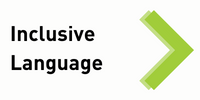
One way a WIC clinic can make LGBTQ+ individuals feel more welcomed is by updating their materials and signage to use more inclusive language.
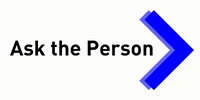
The best way to learn about anyone’s pronoun preferences is to ask them directly, and equally important is to listen to what’s being said. This information is pivotal to creating a person-centered experience.
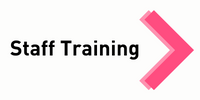
Annually, all staff members should be trained in topics related to providing services to the LGBTQ+ community.
As a cisgender gay man, I am aware of the challenges that individuals in my community face. And because of how I identify myself, I am also aware of my own implicit biases. Knowing this, I am committed to finding ways to continue to guide our program with a vision for inclusion for all, with a steadfast determination and desire. This is a vision that needs to become a reality nationwide now more than ever.
Jose Luis Diaz is the WIC Director for CCI Health Services (a Maryland-based Federally Qualified Health Center). He joined the agency in 2013 as the agency’s marketing director. He is an award-winning creative director with a keen ability to convey and transform complex concepts into useful tools. Outside the office, Jose Luis is a theatrical producer/designer and has had the pleasure to be involved in productions in Maryland, New York, Virginia, and Washington D.C. At the height of the pandemic, he launched a live music stream on YouTube.